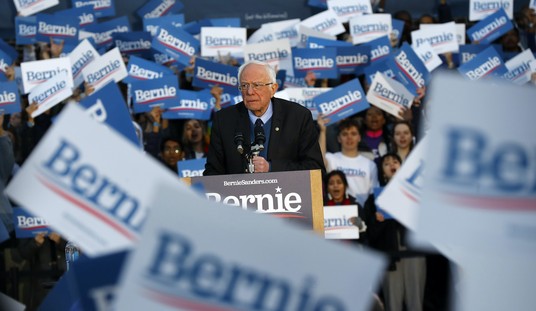This story may be a bit off in the weeds, but it deals with the phenomenon of food trucks, which have become increasingly popular all over the country. But this isn’t a review of where to get the best fish tacos on wheels, but rather a tale of government regulation centered in Baltimore. It’s not illegal or particularly challenging to operate a food truck in Charm City (assuming you don’t get robbed too often), but there are some severe limitations placed on when and where you can operate. And the reasons for those regulations, as CBS Baltimore explains, have little to do with safety or sanitation and everything to do with who is friends with the City Government.
Joey Vanoni of Pizza di Joey, is one of two food truck vendors suing Baltimore City.
“This law is clearly un-American. It’s anti-competitive, it protects one group over another and it discriminates me based on my menu,” Vanoni said to a judge from the witness stand Thursday.
Pizza is Vanoni’s food truck specialty, but if a brick-and-mortar restaurant has pizza or other Italian foods on its menu, a Baltimore law says he must park his truck a football field’s length away.
It’s called the 300-foot rule.
Laws such as this make it increasingly difficult to operate a food truck. It’s a system which works out very well for the brick and mortar eateries who lobby the local government to regulate them out of existence, but poorly for consumers who enjoy having a variety of choices and the option of eating on the go without having to be seated at a restaurant. Unfortunately, when it comes to a battle between consumer preferences and crony capitalism, the consumer generally loses.
This situation is hardly unique to Baltimore. Washington, D.C. imposed severe limits in 2013 on where food trucks can operate and limits how long they can remain parked in one spot. (They’re only supposed to remain parked as long as it takes to serve people who “flag them down” and then move on.) According to The Economist, many other cities are far worse.
New York City has a strict limit on how many permits are issued for such operations and they haven’t increased that limit in decades. It’s pretty much the same thing they did with taxi medallions and those permits now change hands in the private market for as much as $25K. They also passed a law making it illegal to park a food truck in or near any metered parking space. (Which effectively means pretty much all the parking spaces in the city.) The combination of rules means that, as their reporter puts it, starting a food truck has become nearly impossible.
These are blatantly unbalanced laws meant to stop innovative small business owners from getting a toehold in the market and preserving a monopoly for the brick and mortar eateries. And the owners are facing a stacked system. One owner in Chicago finished a four year legal battle challenging the laws there last year and lost in local court. The laws there forced her to park more than 200 feet away from any business serving food of any kind, made her install an expensive GPS system monitored by the city to track her movements and forbids food trucks from parking in one spot for more than 120 minutes. The fines for violating any of these restrictions can sink a small business.
There’s too much of this going on all over the country and the situation isn’t going to change unless consumers let their elected officials know that they won’t stand for it. Anything that thwarts healthy competition is bad for the consumer. It limits choices and drives up prices. Enough is enough.








Join the conversation as a VIP Member